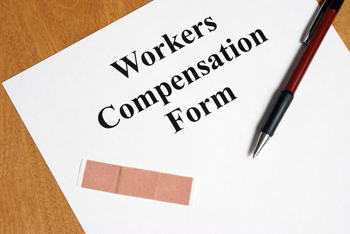Workers’ Compensation insurance is paid to employees who are unable to work due to an injury that occurred at the workplace. The objective is to pay for the medical bills and lost wages of employees that are injured on the job. The WC payment schedule, eligibility requirements and rehab procedures are distinctive to each state in the United States.
The injury should be clearly documented in the claimant’s medical records so that the details can be easily understood during the medical record review process. Attorneys on both sides will be looking for a complete and accurate medical history of the injury. Once the treatment is over for the work-related injury, the claimant will be examined by an independent medical examiner to determine whether the injury has caused any permanent or partial disability. Usually, an order for compensation is issued only after the claimant undergoes two independent medical exams, one at his/her own expense and another at the expense of the insurer. The independent medical examiner examines the patient, which is followed by an interview with him/her. Then the medical examiner would review the claimant’s medical records before finalizing the nature and extent of permanent/partial disability.
The claimant or his/her attorney will have to request for all relevant medical records before obtaining an appointment for an independent medical exam. The claimant’s attorney would also review the medical documents to have a clear understanding of the case.
WC cases become difficult when the employer/insurer insists that the claimant see the doctor the company provides. Here a Workers’ Compensation attorney can help by communicating with the insurance company and seek a compromise by utilizing an AME (agreed medical examiner) to examine the claimant. Why is it important to rely on a single doctor? Mainly because it rules out any potential disagreement between two diverse medical opinions. When there is only one doctor, both sides will have to go by the doctor’s opinion unless it is proved that the doctor made a mistake in some way or other.
Workers’ Compensation disability benefits can be temporary disability (TD) benefits and permanent disability (PD) benefits. Temporary benefits are paid to the claimant when his/her doctor says that the claimant cannot work for more than 3 days, or if the claimant gets hospitalized overnight. The payments are made every 2 weeks and stop when the injured person is cleared to return to work by his/her doctor. For severe personal injuries, the payments may last longer though typically they last for a maximum of 104 weeks. PD or permanent disability benefits are paid if the claimant suffers from a disability that reduces his/her earning capacity, and continue even after the claimant’s maximum medical improvement. The payment made depends on the claimant’s disability rating, date of injury and earnings prior injury. Payment starts within 14 days after TD benefits end and the claimant’s doctor confirms that he/she has permanent disabilities from the injury.




